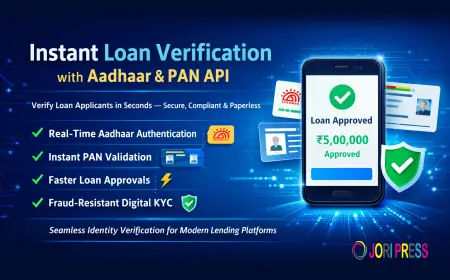The Smart Contract Business Model: Licensing, Monetization & Beyond
Explore how smart contracts are redefining monetization, licensing, and revenue models for modern businesses in 2025.
Smart contracts are no longer just tools for executing transactions—they are reshaping how businesses design their entire revenue models. As decentralized technologies mature, entrepreneurs and enterprises are discovering new ways to monetize digital services, assets, and intellectual property directly through programmable logic. The rise of smart contract-based business models marks a turning point in how companies create, capture, and distribute value.
In 2025, we see a strong trend toward adopting blockchain-powered solutions that don’t just automate processes, but enable entirely new monetization frameworks. From licensing content to facilitating real-time revenue splits, smart contracts are driving innovation in subscription services, pay-per-use infrastructure, and royalty-based ecosystems. To successfully implement these models, organizations are increasingly relying on a trusted smart contract development company to build, deploy, and manage secure, scalable systems that align with their business goals.
Redefining Business Models in a Decentralized World
Traditional business models rely heavily on centralized intermediaries—payment processors, licensing agencies, SaaS platforms, and legal infrastructures. These systems create friction, increase costs, and often delay revenue recognition. In contrast, smart contracts allow businesses to interact peer-to-peer in a trustless environment, executing logic instantly when conditions are met.
The core value proposition of smart contracts is that they eliminate the need for third-party enforcement. This enables businesses to automate licensing terms, payment flows, and content distribution in ways that are more efficient, transparent, and customizable. A smart contract development services provider can help companies transition to these new models while ensuring technical and legal compliance.

Smart Licensing Through Blockchain
One of the most powerful use cases for smart contracts in business is digital licensing. Whether you're offering software, educational content, digital art, or APIs, licensing your work securely and automatically can be transformative. Smart contracts allow creators and businesses to define license types, usage limits, renewal terms, and revocation conditions directly on-chain.
For instance, a SaaS provider can issue a smart contract that grants access to a platform for a specified time and feature set. Once the subscription period expires, access is automatically revoked unless payment is renewed. This reduces reliance on third-party billing software and improves customer retention through seamless renewals.
A seasoned smart contract development company can design custom licensing contracts that integrate with your user management systems, web interfaces, and payment gateways, ensuring a fully automated and secure experience for both providers and users.
Monetization Models Enabled by Smart Contracts
The smart contract-enabled business ecosystem supports a wide range of monetization strategies that go beyond traditional pricing. Subscription-based access, micropayments, token gating, and pay-per-use services are all easily implemented with programmable contracts.
Subscription models can be enforced directly on the blockchain, with recurring payments scheduled and validated by the contract. For instance, a decentralized video platform could restrict content access to only those users who’ve made monthly payments, all without a central administrator.
Micropayments are another area where smart contracts shine. In industries like gaming, journalism, and media streaming, businesses can charge users per second of usage, per article, or per download, eliminating the need for large upfront fees. This is particularly valuable in regions with limited access to banking infrastructure.
Token-based access models also allow companies to monetize through digital tokens that grant utility within an ecosystem. A game developer might issue tokens that give players access to premium features, while a content creator could sell NFTs representing membership tiers.
All of these models require precise execution and robust security. That’s where an experienced smart contract development services team becomes invaluable. They build contracts that not only automate revenue logic but also ensure resilience, compliance, and adaptability to future growth.
Royalty Distribution and Revenue Splitting
Revenue distribution is a complex area for many businesses, especially those involving creators, contributors, and licensors. Smart contracts offer a simple yet powerful solution by automating how funds are split and distributed among stakeholders.
For example, in the music industry, royalties often pass through several intermediaries before reaching the artist. With a smart contract, a single payment from a streaming platform can be automatically split among the artist, producer, label, and publisher in real time, based on predetermined percentages.
This level of precision and speed helps reduce disputes, improve cash flow, and build stronger relationships between collaborators. A smart contract development company can help configure these logic trees accurately, ensuring transparent and tamper-proof accounting across digital ecosystems.
Dynamic Pricing and Demand-Driven Models
Smart contracts enable dynamic pricing structures that can change based on market conditions, user behavior, or scarcity. For instance, an event ticketing platform can create smart contracts that raise prices as demand increases or lower them during low-traffic periods. Similarly, a software license might adjust its cost based on usage intensity or time of day.
These capabilities give businesses more flexibility and control over how they price their services and maximize revenue. In decentralized marketplaces, dynamic pricing contracts can even use external data oracles to adjust pricing based on real-world data, such as stock prices, weather, or supply chain conditions.
A skilled smart contract development services provider can create these advanced pricing mechanisms using secure, audited code and reliable oracle integrations, ensuring both functionality and reliability.
Tokenization as a Business Strategy
Tokenization is another pillar of smart contract-based business models. Companies are increasingly tokenizing assets—both digital and physical—to unlock liquidity, enable fractional ownership, and create new revenue opportunities.
A real estate firm, for example, can tokenize ownership of a commercial property and sell fractional shares to investors using smart contracts that manage payouts, voting rights, and asset transfers. A software company might issue governance tokens that allow users to vote on future features or product roadmaps, creating a community-driven development process.
These tokens can also serve as loyalty points, staking mechanisms, or access credentials, depending on the business model. With proper planning and execution by a smart contract development company, tokenization becomes a secure, transparent, and scalable revenue driver.
Compliance, Auditing, and Business Trust
While smart contracts offer automation and efficiency, they also introduce new risks. A small coding error can lead to major financial losses or contractual disputes. Additionally, in regulated industries like finance, healthcare, and real estate, compliance and auditability are non-negotiable.
That’s why working with a smart contract development services firm is essential. These experts follow best practices in smart contract security, offer formal verification, and ensure that your contracts comply with both industry regulations and data privacy standards.
Moreover, enterprise-grade auditing and reporting features can be built into smart contracts, providing real-time visibility into revenue flows, user actions, and system performance. This level of transparency builds trust with stakeholders, investors, and partners—something every forward-thinking business needs in a decentralized world.
Interoperability and Ecosystem Integration
A successful smart contract business model doesn’t operate in isolation. It must interact with wallets, front-end applications, external APIs, and other blockchains. Whether you’re launching on Ethereum, Solana, zkSync, or a Layer-2 solution, interoperability plays a key role in reaching a broader audience and maximizing revenue.
For instance, you might want a licensing smart contract that works seamlessly across multiple blockchain platforms, enabling users to access your product regardless of the chain they prefer. Or you might need your monetization contract to pull user data from off-chain systems or sync with your CRM.
Only an experienced smart contract development company can architect these integrations without compromising performance, usability, or security. By designing with interoperability in mind, businesses can future-proof their models and unlock greater growth potential.
The Future of Smart Contract Business Models
Looking ahead, we will see more convergence between smart contracts, AI, and data analytics. Smart contracts could eventually adapt pricing, usage rights, and access control based on real-time user behavior and machine learning insights. This will allow companies to personalize monetization strategies at scale while maintaining complete automation.
Decentralized autonomous organizations (DAOs) will also play a larger role in governing how smart contract-based businesses operate. Stakeholders will vote on licensing policies, pricing updates, and revenue distribution rules, all enforced by tamper-proof smart contracts.
To stay ahead in this landscape, businesses must not only innovate their business models but also invest in expert guidance and technical infrastructure. Partnering with a top-tier smart contract development company is the first step toward building resilient, adaptive, and profitable blockchain-enabled enterprises.
Conclusion
The smart contract business model represents a fundamental shift in how value is created and monetized in the digital age. From licensing and subscriptions to tokenization and revenue sharing, smart contracts provide the tools to build lean, scalable, and trustless systems.
By working with a professional smart contract development services provider, businesses can unlock these opportunities securely and strategically. Whether you’re launching a SaaS platform, a creative marketplace, or a tokenized asset platform, smart contracts enable more control, less overhead, and higher revenue potential.
The future of business is on-chain. And it’s programmable, transparent, and built to scale.

What's Your Reaction?
 Like
0
Like
0
 Dislike
0
Dislike
0
 Love
0
Love
0
 Funny
0
Funny
0
 Angry
0
Angry
0
 Sad
0
Sad
0
 Wow
0
Wow
0
















































